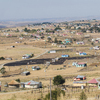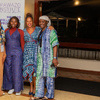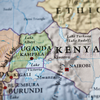Securing a sustainable future through resource efficiency, minerals and metals
10 April 2024 | Story Laura Rawden. Read time 10 min.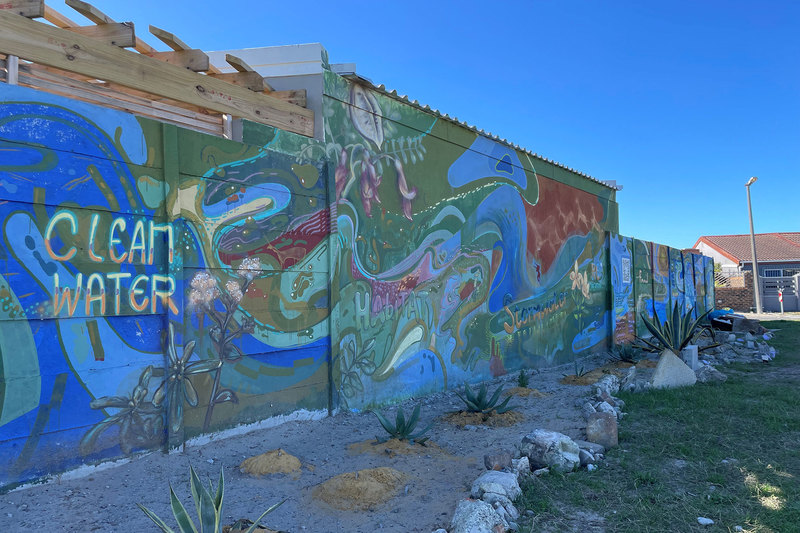
Research is integral to finding innovative practices and pathways to a sustainable future. When it comes to how resources are used for sustainable development, including minerals and metals, how a just transition is achieved and how mining communities are impacted, these South African Research Chairs Initiative (SARChI) chairs and a Centre of Excellence (CoE) at the University of Cape Town (UCT) have made invaluable contributions. Their work falls under the theme “Resource-efficient and nature-based solutions for sustainable development” – one of the five research focal areas devised under UCT’s Vision 2030.
An initiative aimed at enhancing research and innovation in South Africa, the SARChI programme was launched as part of the national Department of Science and Innovation (DSI) and National Research Foundation (NRF). The CoEs are similarly awarded by the DSI through the NRF. These physical or virtual centres of research are multi-institutional and have allowed researchers to collaborate across disciplines and institutions on long-term projects that are locally relevant and internationally competitive.
As they come to the end of 15 years of national funding, these SARChI chairs have led research that focuses on resource efficiency to maximise social value and minimise waste, drive sustainable development through responsible mineral beneficiation, and leverage nature to protect and restore ecosystems on our continent.
Sustainable development through minerals
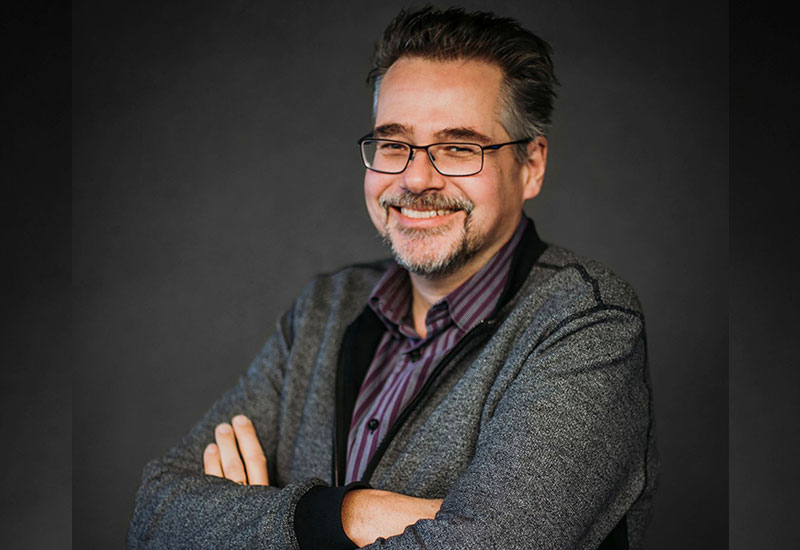
Working to create a platform for sustainable development in Africa through minerals and metals is the NRF SARChI Chair in Minerals Beneficiation, held by Professors JP Franzidis, the late Dee Bradshaw and Jochen Petersen over its 15-year tenure. The chair has enabled innovative practices in mining, mineral attainment and metal extraction that consider both complex social dynamics and the future of the planet.
“South Africa’s economic growth is greatly dependent on the efficiency and sustainability of its mining industry,” explained Professor Petersen, “but it must also tread lightly when it comes to people and the planet.”
Among other achievements, Petersen’s work has contributed to developing geo-metallurgy guidelines for minerals processing, e-waste recovery methods, and a framework for research and education to support a sustainable and socially responsible mining industry in Africa.
These accomplishments were enabled by the Minerals to Metals (MTM) initiative, an interdisciplinary research centre that aims to integrate and expand capacity in minerals beneficiation research, for which Petersen is the director.
“Looking at mineral value chains through an SDG lens was pioneered in South Africa, and perhaps globally, through projects started under the Chair. Many of these concepts are now being adopted and developed further in the minerals industry.”
With a focus on driving Africa’s sustainable development through minerals beneficiation research, MTM nurtures future leaders of the minerals industry and helps bridge the gap between academia and industry.
Indeed, Petersen, along with professors Franzidis (2007–2014) and Bradshaw (2016–2018), has supported over 100 postgraduate students and 12 postdoctoral fellows, working on 116 distinct research projects. Many of these graduates have gone on to careers in the industry, influencing its path to sustainable operation.
Through their research, important linkages have been built with key national partners. Among these are the South African Minerals to Metals Research Institute (SAMMRI), Mintek, and the Council for Scientific and Industrial Research (CSIR).
From an international perspective, the SARChI chair has contributed to developing global guidance on how large-scale mining companies could contribute to achieving the United Nations (UN) Sustainable Development Goals (SDGs).
“Looking at mineral value chains through an SDG lens was pioneered in South Africa, and perhaps globally, through projects started under the chair. Many of these concepts are now being adopted and developed further in the minerals industry,” Petersen said.
Researching a low carbon future
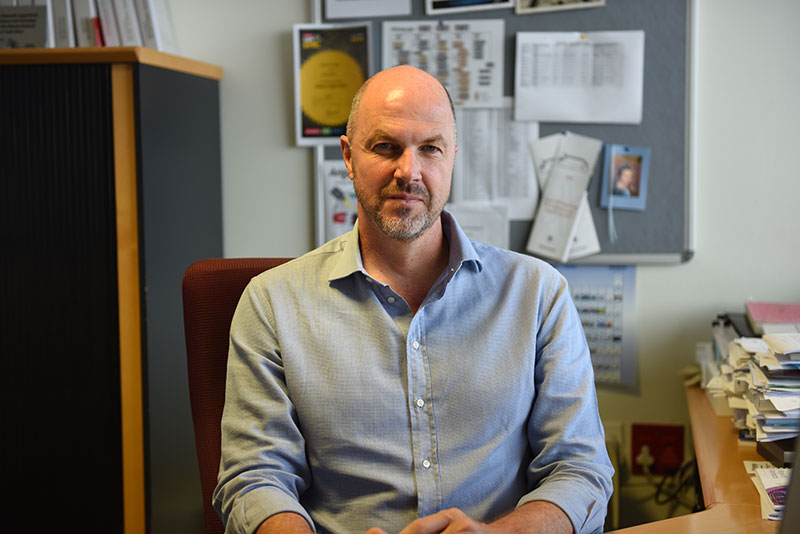
Research of relevance to science and sustainable futures has been at the forefront of the work done by the DSI-NRF CoE in Catalysis Research, c*change. Hosted by the Catalysis Institute in the Department of Chemical Engineering and working with researchers in chemistry and bioprocess engineering at UCT and some eight universities across South Africa, the CoE has created a multidisciplinary network in the field of synthetic fuels and chemicals production.
“Catalysis has a crucial role to play in the country’s just energy transition. The efforts made by the centre’s researchers and students have walked us closer to a lower-carbon future,” said c*change director, Professor Michael Claeys.
Catalysis lies at the heart of 90% of chemical transformation processes. Chemical manufacturing, for which chemical processing and catalysis are essential, makes up the largest segment of South Africa’s broader manufacturing sector. Catalysis research is also vital in the drive to create viable renewable technologies.
The CoE’s Synthesis Gas (SYN) programme, for example, involved the conversion of synthesis gas to fuels and chemicals at the fundamental molecular level. This high-demand research area has international implications, with countries globally seeking to produce fuels and chemicals from alternative sources such as biomass, waste and even the greenhouse gas CO2.
“Our progress proves the relevance of this field to the country and to the world – right now, more than ever.”
The Paraffin Activation (PAR) programme at the centre also looked at repurposing fuel and its components. Specifically, it aimed to add value to molecules called paraffins, which are produced in the coal- and gas-to-liquid fuel process. The work would mean using non-renewable fossil fuel reserves more efficiently in producing chemicals that are assets in and of themselves. It dovetails well with the research of the SARChI Chair in Bioprocess Engineering, through biocatalysis.
Beyond driving innovative research, c*change has contributed to a new way for academics in South Africa’s catalysis community to work together. It runs its own triennial international conference, the Syngas Convention, and has supported the development of over 200 graduates who have continued careers in academia and industry.
“Our progress proves the relevance of this field to the country and to the world – right now, more than ever,” said Professor Claeys.
Resource Efficiency and Mining communities in the African context
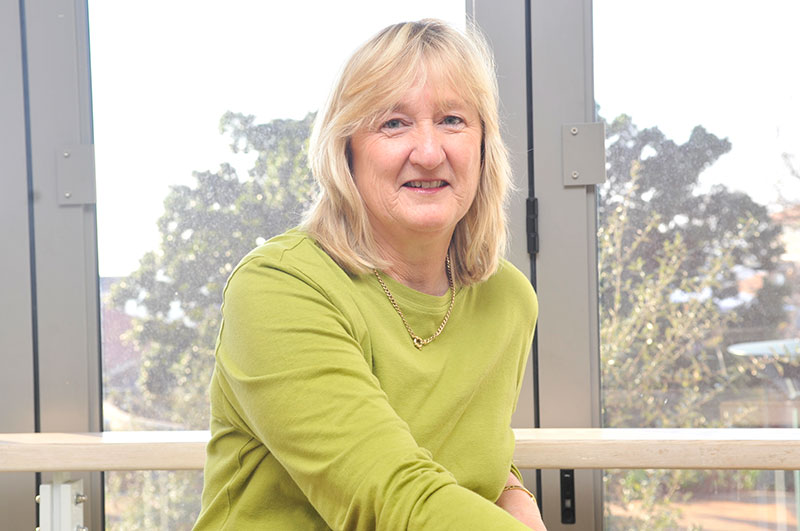
As SARChI Chair in Bioprocess Engineering (2019–2022), Associate Professor Jennifer Broadhurst brings experience from industry to her research, which focuses on the long-term environmental impacts of resource extraction and the inter-generational burdens this imposes on communities in the African context.
Using interdisciplinary and transdisciplinary approaches, Associate Professor Broadhurst’s research focuses on the characterisation and management of mine waste and water, and measuring and monitoring health risks related to mine dust, as well as their associated long-term environmental impacts and adverse effects on surrounding communities.
Together, Broadhurst and original chairholder, Professor Sue Harrison (2008–2019), continue to make valuable contributions. Their collaborative work is focused on bio-based technologies for metal extraction from virgin resources and waste, recovery and re-purposing of mine waste, mitigation of acid mine drainage and SCN-rich mine water, and the development of post-closure economic opportunities. Through these, they aim to support the environmentally and socially responsible extraction and primary development of South Africa’s mineral resources.
“It is important for these regions to develop the capacity to address their unique sustainability challenges – as opposed to relying on models and expertise from richer developing countries.”
Hosted in the Department of Chemical Engineering’s Centre for Bioprocess Engineering Research (CeBER), the SARChI Chair in Bioprocess Engineering has facilitated the development of a team of researchers, focused on biologically mediated paths to sustainable development. Working beyond minerals, the CeBER team has built the concepts of the waste biorefinery – and specifically, the wastewater biorefinery – for improved resource efficiency, to yield both bio-energy and platform chemicals. It has built a strong basis in algal biotechnology and developed resource-efficient bioreactor systems.
Through the support of the SARChI chair and leveraged funding, some 23 PhDs and 70 master’s students have completed their studies and 23 postdoctoral fellows have been hosted, many of whom now contribute in industry and in academia.
Broadhurst was recognised by the Women Sustainability Forum, who conferred on her the 2021 Exceptional Women in Sustainability (e-Wisely) Award. Referring to this award in a previous UCT News article, she expressed the importance of growing connections with other sustainability professionals on the African continent, and in developing regions that have similar socio-economic and environmental challenges.
“It is important for these regions to develop the capacity to address their unique sustainability challenges – as opposed to relying on models and expertise from richer developing countries – and to promote gender equality,” she said.
Read more about the research focal areas.
 This work is licensed under a Creative Commons Attribution-NoDerivatives 4.0 International License.
This work is licensed under a Creative Commons Attribution-NoDerivatives 4.0 International License.
Please view the republishing articles page for more information.
Research & innovation



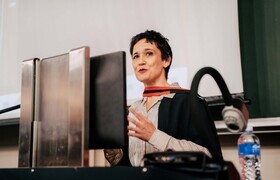
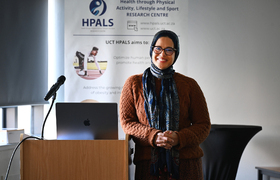













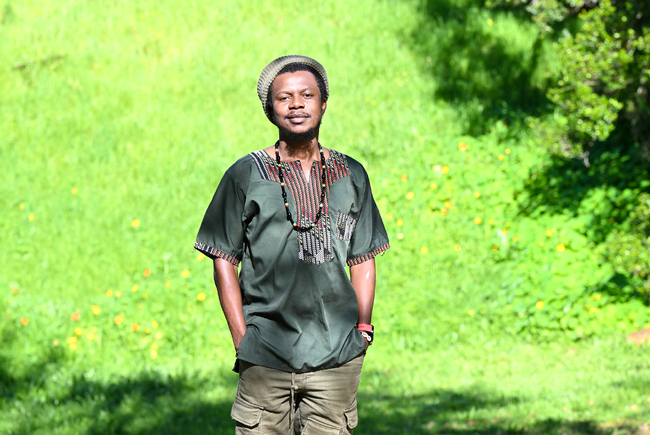

.jpg)





